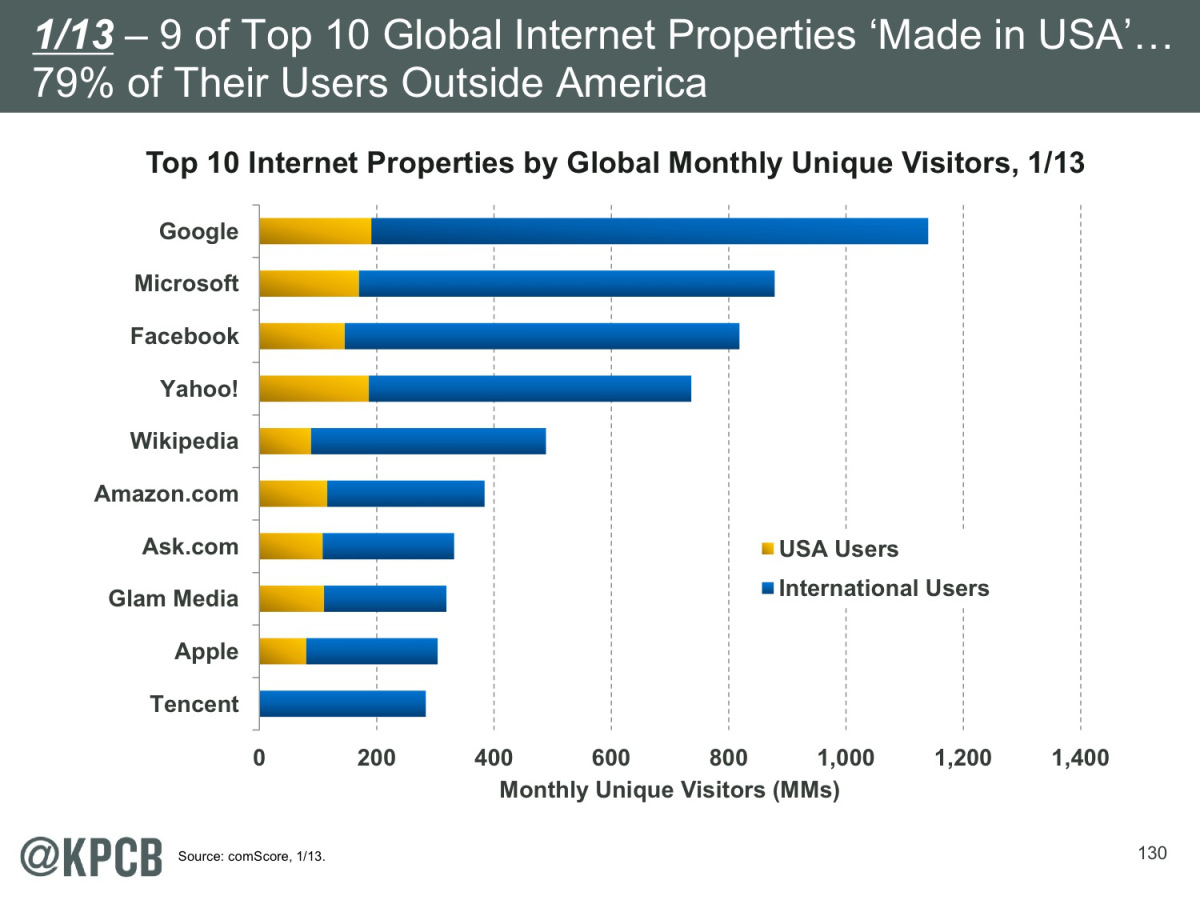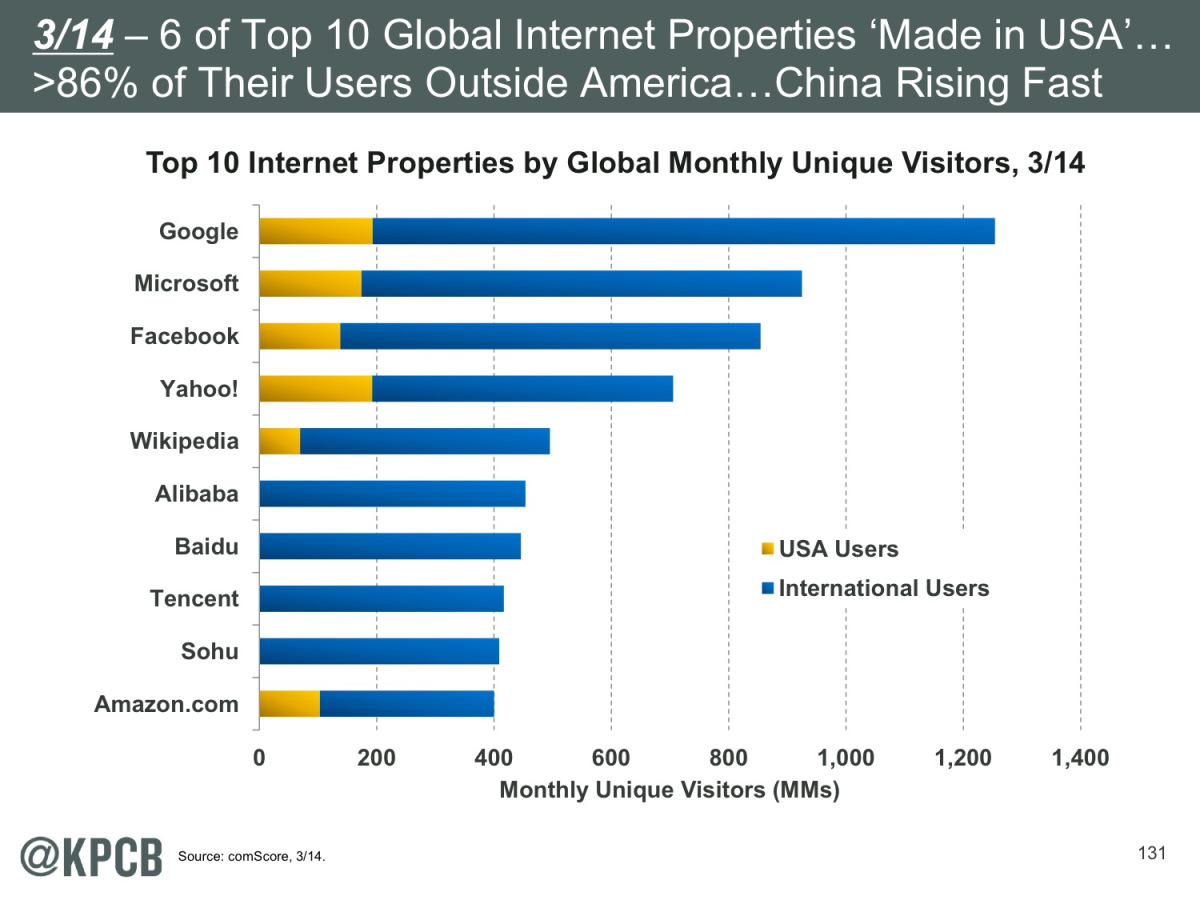Chinese Companies Are Changing the “State of the Internet”
The Internet evolves quickly and its “state” changes a lot in a year. One big shift highlighted in Kleiner Perkins venture capitalist Mary Meeker’s annual report on online trends: four of the top 10 most popular Internet properties are now held by Chinese companies—up from just one a year ago.
Only a year ago, Tencent, a leader in China’s social networking and gaming scene and maker of the wildly popular chat app WeChat, was the the 10th most popular Internet property, by a count of global monthly unique visitors. It was also China’s lone representative in the top 10, with the other nine slots held by U.S. companies.

Data from this year is shown on the chart below. Not only has Tencent risen two spots, it is also now accompanied in the top 10 by three Chinese peers. Sohu and Baidu are search engines that offer a variety of other services. Alibaba, the e-commerce giant planning an enormous U.S. IPO, is now the most popular Chinese-owned Internet property in the world. At the rate the Internet’s popularity is growing in China, especially in the mobile arena, it would not be a surprise if next year’s list featured even more Chinese companies (see “Alibaba’s Big Rivals May Have a Mobile Edge”).

Keep Reading
Most Popular
Large language models can do jaw-dropping things. But nobody knows exactly why.
And that's a problem. Figuring it out is one of the biggest scientific puzzles of our time and a crucial step towards controlling more powerful future models.
How scientists traced a mysterious covid case back to six toilets
When wastewater surveillance turns into a hunt for a single infected individual, the ethics get tricky.
The problem with plug-in hybrids? Their drivers.
Plug-in hybrids are often sold as a transition to EVs, but new data from Europe shows we’re still underestimating the emissions they produce.
Stay connected
Get the latest updates from
MIT Technology Review
Discover special offers, top stories, upcoming events, and more.